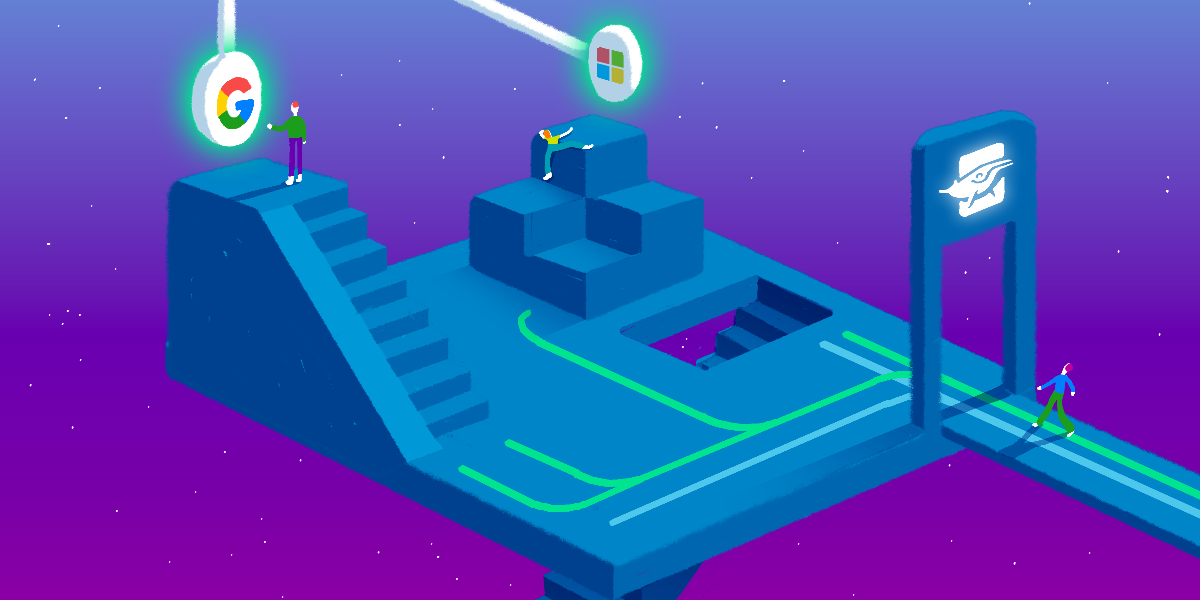In today’s rapidly evolving educational landscape, the integration of technology has become paramount. One such technological innovation that has revolutionized the way education is delivered and consumed is the Learning Management System (LMS). From traditional classrooms to corporate training programs, LMS platforms have emerged as indispensable tools for educators and learners alike.
Introduction to Learning Management Systems (LMS)
Definition of LMS
A Learning Management System (LMS) is a software application designed to streamline the administration, documentation, tracking, and delivery of educational content. It provides educators with a centralized platform to create, manage, and deliver online courses, while also offering learners access to a wide range of resources and interactive learning experiences.
Importance of LMS in Modern Education
In an era characterized by digitalization and remote learning, learning management systems platforms play a crucial role in ensuring access to quality education irrespective of geographical barriers. They facilitate the creation of engaging and interactive learning experiences, catering to diverse learning styles and preferences.
The Evolution of Learning Management Systems
Historical Background
The concept of Learning Management Systems traces back to the 1990s when organizations began exploring ways to deliver training programs electronically. Initially, LMS platforms were rudimentary, offering basic functionalities such as content storage and course management.
Technological Advancements
Over the years, LMS technology has evolved significantly, driven by advancements in cloud computing, artificial intelligence, and mobile technology. Modern LMS platforms boast sophisticated features such as adaptive learning algorithms, multimedia integration, and real-time collaboration tools.
Key Features of Learning Management Systems
Content Management
LMS platforms allow educators to create, upload, organize, and share educational content seamlessly. From multimedia presentations to interactive quizzes, instructors can leverage various multimedia formats to enhance the learning experience.
User Management
User management functionalities enable administrators to enroll learners, assign roles and permissions, and track their progress within the LMS. This feature ensures personalized learning pathways tailored to individual needs and objectives.
Assessment and Grading
LMS platforms facilitate the creation and administration of assessments, quizzes, and assignments. They provide automated grading and feedback mechanisms, enabling educators to evaluate learner performance efficiently.
Communication Tools
Effective communication is essential for fostering collaboration and engagement in online learning environments. LMS platforms offer communication tools such as discussion forums, messaging systems, and video conferencing capabilities, enabling seamless interaction between instructors and learners.
Benefits of Implementing Learning Management System

Enhanced Accessibility
LMS platforms transcend geographical boundaries, allowing learners to access educational content anytime, anywhere. Whether it’s a student participating in a virtual classroom or a professional undergoing remote training, LMS platforms ensure equal access to learning opportunities.
Personalized Learning Experience
One of the significant advantages of Learning Management System platforms is their ability to deliver personalized learning experiences. Through data analytics and adaptive learning algorithms, educators can tailor course content and assessments to match the unique preferences and proficiency levels of individual learners.
Improved Efficiency
By automating routine administrative tasks such as course enrollment, grading, and reporting, LMS platforms free up educators’ time, allowing them to focus on instructional design and student engagement. This streamlined approach enhances overall efficiency and productivity in educational settings.
Cost-effectiveness
Traditional methods of education often entail significant expenses related to infrastructure, travel, and printed materials. In contrast, LMS platforms offer a cost-effective alternative by reducing overhead costs associated with physical facilities and logistics.
Challenges in Adopting Learning Management Systems
Technical Issues
Implementing and managing an LMS requires technical expertise and infrastructure support. Issues such as system compatibility, software updates, and network connectivity can pose challenges for organizations transitioning to digital learning environments.
Resistance to Change
Resistance to change is another common challenge encountered during the adoption of Learning Management System platforms. Educators and learners accustomed to traditional teaching methods may be reluctant to embrace technology-driven approaches, leading to resistance and skepticism.
Training and Support Requirements
Effective utilization of LMS platforms necessitates comprehensive training and ongoing support for educators, administrators, and learners. Investing in professional development programs and technical assistance is essential to ensure smooth implementation and user adoption.
Case Studies: Successful Implementation of Learning Management Systems
Corporate Sector
Many leading corporations have successfully implemented LMS platforms to deliver employee training and development programs. Companies like IBM, Amazon, and Microsoft utilize LMS technology to upskill their workforce and enhance organizational performance.
Educational Institutions
From K-12 schools to higher education institutions, LMS platforms have become integral components of educational ecosystems. Universities like Harvard and Stanford leverage LMS technology to deliver online courses, facilitate virtual classrooms, and support distance learning initiatives.
Future Trends in Learning Management Systems
Artificial Intelligence Integration
The integration of artificial intelligence (AI) technologies such as machine learning and natural language processing promises to revolutionize LMS platforms. AI-powered features such as personalized recommendations, automated content creation, and intelligent tutoring systems will enhance the efficiency and effectiveness of online learning experiences.
Mobile Learning
With the proliferation of smartphones and tablets, mobile learning has gained prominence as a convenient and accessible mode of education. LMS platforms are increasingly optimized for mobile devices, enabling learners to access course materials and participate in activities on the go.
Gamification
Gamification is a strategy that incorporates game elements and mechanics into non-game contexts, such as education and training. LMS platforms leverage gamification techniques to enhance learner engagement, motivation, and retention through interactive challenges, rewards, and progress tracking.
Best Practices for Utilizing LMS

Setting Clear Objectives
Before implementing an LMS, it’s essential to establish clear learning objectives and outcomes aligned with organizational goals. Defining measurable success criteria ensures that the LMS effectively addresses the specific needs and priorities of educators and learners.
Providing Comprehensive Training
To maximize the benefits of an LMS, it’s crucial to offer comprehensive training and professional development opportunities to all stakeholders involved. Educators, administrators, and learners should receive proper guidance on navigating the platform, creating engaging content, and utilizing advanced features effectively.
Regularly Updating Content
The dynamic nature of knowledge necessitates regular updates to course content and materials within the LMS. Educators should strive to keep information current, relevant, and aligned with emerging trends and industry standards. Regular content updates ensure that learners receive up-to-date information and maintain engagement with the learning materials.
Security and Data Privacy Concerns
Data Encryption
Security is a paramount concern when it comes to managing sensitive educational data within an LMS. Employing robust encryption protocols and secure authentication mechanisms helps safeguard confidential information and prevent unauthorized access to user data.
Compliance with Regulations
Educational institutions and organizations must adhere to stringent data privacy regulations such as the General Data Protection Regulation (GDPR) and the Family Educational Rights and Privacy Act (FERPA). Implementing LMS platforms that comply with relevant regulatory requirements ensures legal compliance and protects the privacy rights of learners.
The Role of Learning Management Systems in Remote Education
Impact of COVID-19 Pandemic
The global COVID-19 pandemic has accelerated the adoption of remote learning solutions, highlighting the pivotal role of LMS platforms in ensuring continuity of education. Schools, universities, and businesses worldwide have relied on LMS technology to facilitate remote teaching, learning, and collaboration amid lockdowns and social distancing measures.
Long-Term Implications
While initially driven by necessity, the shift towards remote education has profound long-term implications for the future of learning. LMS platforms enable flexible, self-paced learning experiences that cater to diverse learner needs and preferences. As remote and hybrid learning models become increasingly prevalent, LMS technology will continue to play a central role in shaping the future of education.
The Future of Education with Learning Management Systems
Hybrid Learning Models
The future of education lies in hybrid learning models that combine the best elements of traditional classroom instruction with online learning opportunities. LMS platforms serve as the backbone of hybrid learning environments, facilitating seamless integration between in-person and virtual learning experiences.
Lifelong Learning Opportunities
In an era of rapid technological advancement and evolving skill requirements, lifelong learning has become imperative for personal and professional development. LMS platforms empower individuals to pursue continuous learning opportunities, acquire new skills, and adapt to changing industry demands throughout their lives.
Conclusion
In conclusion, Learning Management Systems (LMS) represent a transformative force in modern education, bridging the gap between traditional teaching methods and digital innovation. By leveraging advanced technology, personalized learning experiences, and comprehensive training support, LMS platforms empower educators and learners to achieve their educational goals efficiently and effectively. As we navigate the evolving landscape of education, LMS technology will continue to evolve, driving innovation, accessibility, and inclusivity in learning environments worldwide.
